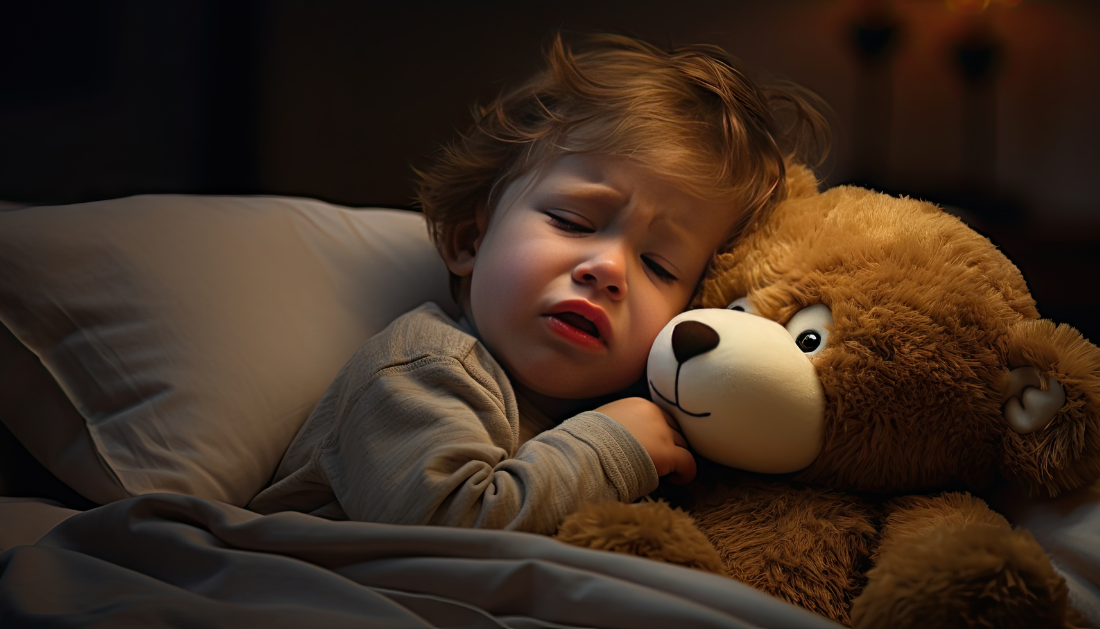

In brief, young adults who suffer from chronic sleep deprivation from infancy through early adolescence are at a much-increased risk of developing psychosis. Researchers discovered that chronic sleep deprivation is a powerful predictor of psychotic disorders and psychotic episodes later in life after analyzing data from the Avon Longitudinal Study of Parents and Children.
It is crucial to address sleep concerns early, as this study—the first of its kind to link persistent sleep problems with subsequent mental health issues—highlights. Potential scientific causes, such as immune system dysfunctions, were also investigated in the study, pointing to intricate relationships between sleep, physical health, and mental health.
Important Details:
- Strong Association with Psychosis: Children who regularly slept less than four hours a night were almost four times more likely to encounter psychotic episodes in their early adult years and more than twice as likely to acquire psychotic disorders.
- Long-Term Study Data: The extensive Avon Longitudinal Study of Parents and Children, which tracked sleep patterns from 6 months to 7 years and mental health at 24 years, was the basis for the conclusions.
- Possible Correlates Biologically: The association between sleep deprivation and psychosis may be partially explained by immune system malfunction, which is indicated by elevated levels of inflammation, according to preliminary studies, though other factors are probably at play as well.
University of Birmingham
According to a recent study, children who suffer from chronic sleep deprivation from an early age may be more likely to have psychosis in their early adult years.
The University of Birmingham’s researchers looked at data on the length of sleep at night from a sizable cohort study of kids between the ages of six months and seven years.
They discovered that kids who consistently slept for shorter periods throughout this age had a roughly four-fold increased risk of experiencing a psychotic episode and a more than two-fold increased risk of developing a psychotic condition in their early adult years.
This is the first study to demonstrate that a continuous lack of sleep is a substantial predictor of psychosis, even though other research has indicated correlations between sleep issues and psychosis at particular times.
Dr. Isabel Morales-Muñoz, the lead author, stated: “It’s important to know when it might be time to seek help, but it’s entirely normal for children to suffer from sleep problems at different points in their childhood.” We detect correlations between persistent and chronic sleep problems and adult psychiatric disorders in this context.
“The good news is that we know that improving our sleep patterns and behaviors is possible. While persistent lack of sleep may not be the only cause of psychosis in early adulthood, our research suggests that it is a contributing factor, and it is something that parents can address.”
Based on information from the Avon Longitudinal Study of Parents and Children (ALSPAC), which has records of 12,394 children from 6 months to 7 years old and 3,889 at 24 years old, the findings were published in JAMA Psychiatry.
Despite the study’s strong correlation between sleep deprivation as a kid and early-life psychosis, the researchers did not establish a cause-and-effect relationship, and further research is necessary to identify additional variables linked to both childhood sleep and psychosis.
For instance, the team examined the children’s general immune system health to determine whether immune system deficiencies could be the cause of some of the correlations observed between sleep deprivation and psychosis.
Nine-year-olds were checked for this by having blood samples’ levels of inflammation measured. The association between sleep deprivation and psychosis may be partially explained by a compromised immune system, but other unidentified variables are probably equally significant.
The National Institute for Health and Care study funds Dr. Morales-Muñoz’s study as part of the Mental Health Mission Midlands Translational Centre, which is headed by the University of Birmingham. Its goal is to evaluate and certify therapies for pediatric and adolescent depression and early psychosis.
“We know that early intervention is really important in helping young people with mental illness. One of the priorities of the Midlands Mental Health Mission Translational Research Centre of Excellence is to develop and test targeted interventions that could have a real impact on young people who have an illness or who are at risk of developing one.
“Understanding the role that good sleep hygiene plays in positive mental health could be a really important part of this process.”
For more information: Role of Inflammation in Short Sleep Duration Across Childhood and Psychosis in Young Adulthood, JAMA Psychiatry, doi:10.1001/jamapsychiatry.2024.0796
more recommended stories
 Brain’s Biological Age Emerges as Key Health Risk Indicator
Brain’s Biological Age Emerges as Key Health Risk IndicatorClinical Significance of Brain Age in.
 Children’s Health in the United States is Declining!
Children’s Health in the United States is Declining!Summary: A comprehensive analysis of U.S..
 Autoimmune Disorders: ADA2 as a Therapeutic Target
Autoimmune Disorders: ADA2 as a Therapeutic TargetAdenosine deaminase 2 (ADA2) has emerged.
 Is Prediabetes Reversible through Exercise?
Is Prediabetes Reversible through Exercise?150 Minutes of Weekly Exercise May.
 New Blood Cancer Model Unveils Drug Resistance
New Blood Cancer Model Unveils Drug ResistanceNew Lab Model Reveals Gene Mutation.
 Healthy Habits Slash Diverticulitis Risk in Half: Clinical Insights
Healthy Habits Slash Diverticulitis Risk in Half: Clinical InsightsHealthy Habits Slash Diverticulitis Risk in.
 Caffeine and SIDS: A New Prevention Theory
Caffeine and SIDS: A New Prevention TheoryFor the first time in decades,.
 Microbial Metabolites Reveal Health Insights
Microbial Metabolites Reveal Health InsightsThe human body is not just.
 Reelin and Cocaine Addiction: A Breakthrough Study
Reelin and Cocaine Addiction: A Breakthrough StudyA groundbreaking study from the University.
 Preeclampsia and Stroke Risk: Long-Term Effects
Preeclampsia and Stroke Risk: Long-Term EffectsPreeclampsia (PE) – a hypertensive disorder.

Leave a Comment